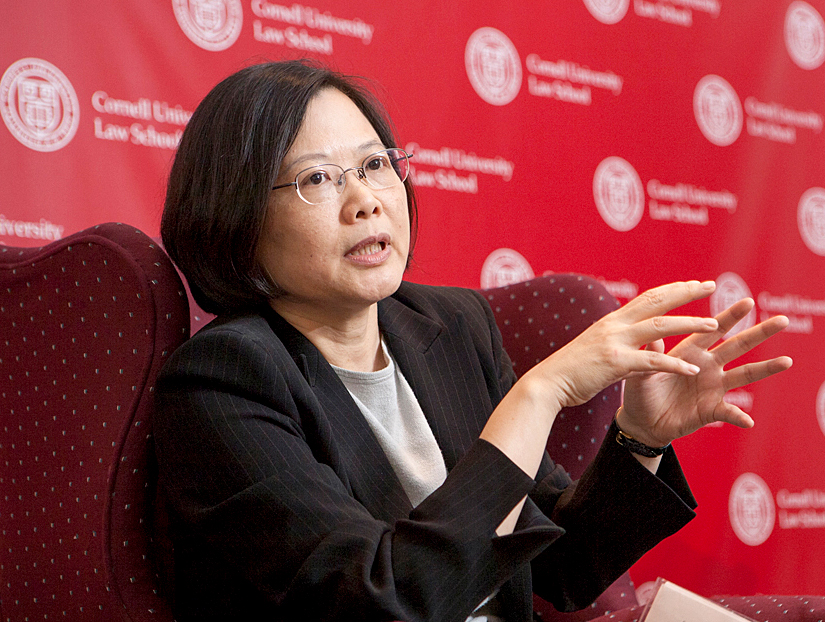Taiwan elects its second Cornell alumnus as president
By Blaine Friedlander

In a landmark national election Jan. 16, Taiwan elected Tsai Ing-wen, LL.M. ’80, its next president – the first woman and the second Cornellian to hold Taiwan's highest office. She will assume the presidency May 20.
As a moderate who favors human rights, strong democratic beliefs, good relations with the United States and economic engagement with China, Tsai was one of the prime negotiators for Taiwan’s membership into the World Trade Organization in 1990s, and she once served as national security adviser to President Lee Teng-hui, Ph.D. ’68, the first Cornell alumnus elected Taiwan’s president, who served from 1988 to 2000.
“Tsai Ing-wen’s election is the latest chapter in Cornell Law School’s long history of engagement internationally, and with East Asia in particular through initiatives like the Clarke Program in East Asian Law and Culture,” said Eduardo Peñalver, the Allan R. Tessler Dean of the Law School. “We are tremendously proud of her election, and we wish her the best as she begins her presidency.”
Annelise Riles, the Jack G. Clarke Professor of Far East Legal Studies in the Law School and professor of anthropology in the College of Arts and sciences, said: “In addition to her formidable political skills, Tsai Ing-wen is a legal scholar who appreciates complexity in policy questions and brings sophisticated technical expertise to the search for solutions. We hope to work with her to pioneer new forms of collaboration between policymakers and the academy around key problems facing the region, from environmental policy to intergenerational justice to peace and security in the Asia-Pacific region.”
In September 2008, Tsai spoke at the Cornell Law School describing Taiwan’s strides in democracy, trade and identity. China, Taiwan and the United States have a lot at stake regarding the status of China and Taiwan, saying, “Peace and stability serve the best interest of all the parties.”
At that time, Tsai hoped that China would demonstrate respect for culture, democracy, free will and basic human rights. She said, “Nationalism is not necessarily a bad idea if it is geared toward building a sense of community among people who have shared values and common objectives.”
After she assumes the presidency, Tsai plans to invest in social infrastructure, housing and long-term senior care, she said in a speech last June to the Center for Strategic and International Studies in Washington. “These are highly demanded in Taiwan as it moves to an aging society,” she said.
By making meaningful contributions to international affairs, Tsai affirmed her stance to maintain a friendly regional environment, and “needless to say, a critical component is a need to maintain a peaceful and stable relationship with China,” she said.
Media Contact
Get Cornell news delivered right to your inbox.
Subscribe